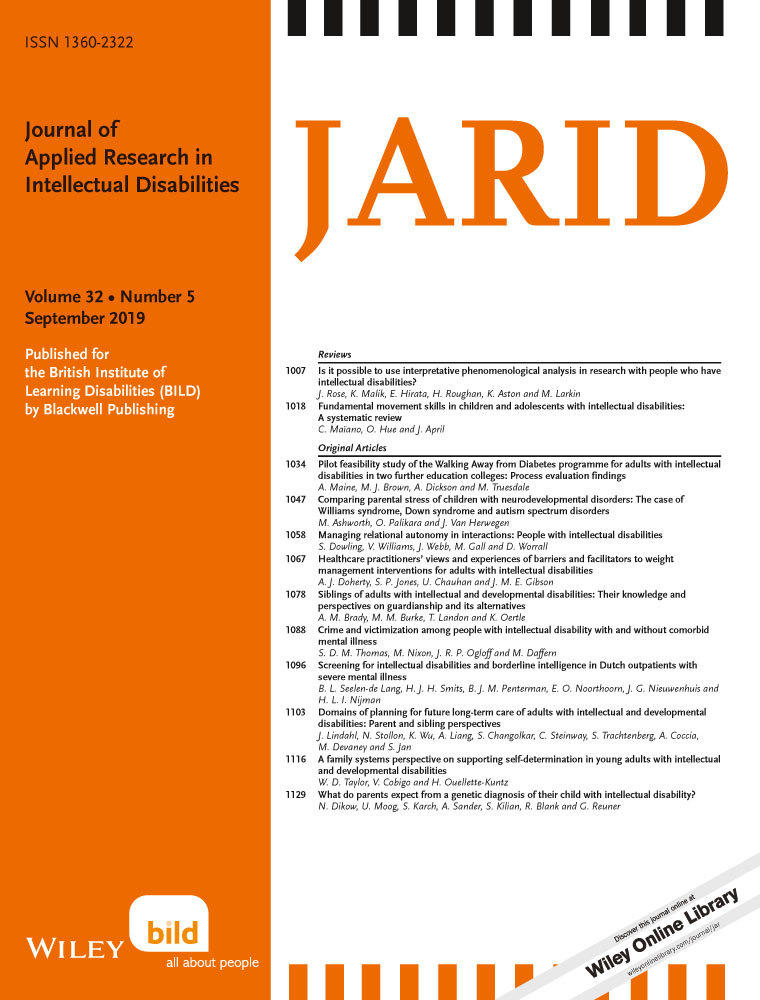The predictive validity of the MoCA-LD for assessing mental capacity in adults with intellectual disabilities
Abstract
Background
Mental capacity assessments currently rely on subjective opinion. Researchers have yet to explore the association between key cognitive functions of rational decision making and mental capacity classifications for people with intellectual disabilities.
Method
Sixty-three adults completed the Montreal Cognitive Assessment, which yielded estimates of their overall cognitive ability (MoCA-LD) as well as their memory, attention, language and executive functioning. Differences in scores were explored for those who had, and lacked, capacity, and logistic regression was used to test the predictive validity of each measure.
Results
There were significant differences between both groups for all measures. Logistic regression identified MoCA-LD as a significant predictor of capacity assessment outcomes. ROC curve analysis provided novel, evidence-based benchmarks to help guide clinical practice based on MoCA-LD scores.
Conclusion
This study offers a foundation for more objective approaches to mental capacity assessment. This demonstrates that assessments of cognitive ability can yield information that is helpful for mental capacity evaluations.




